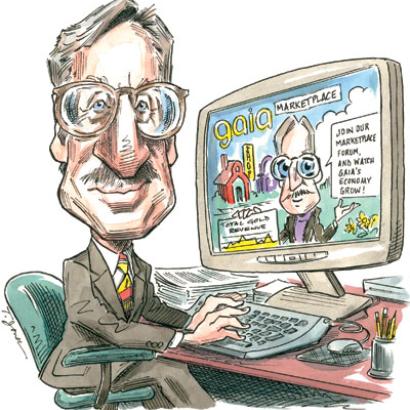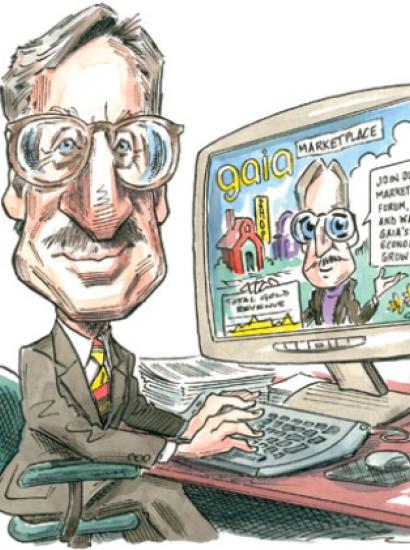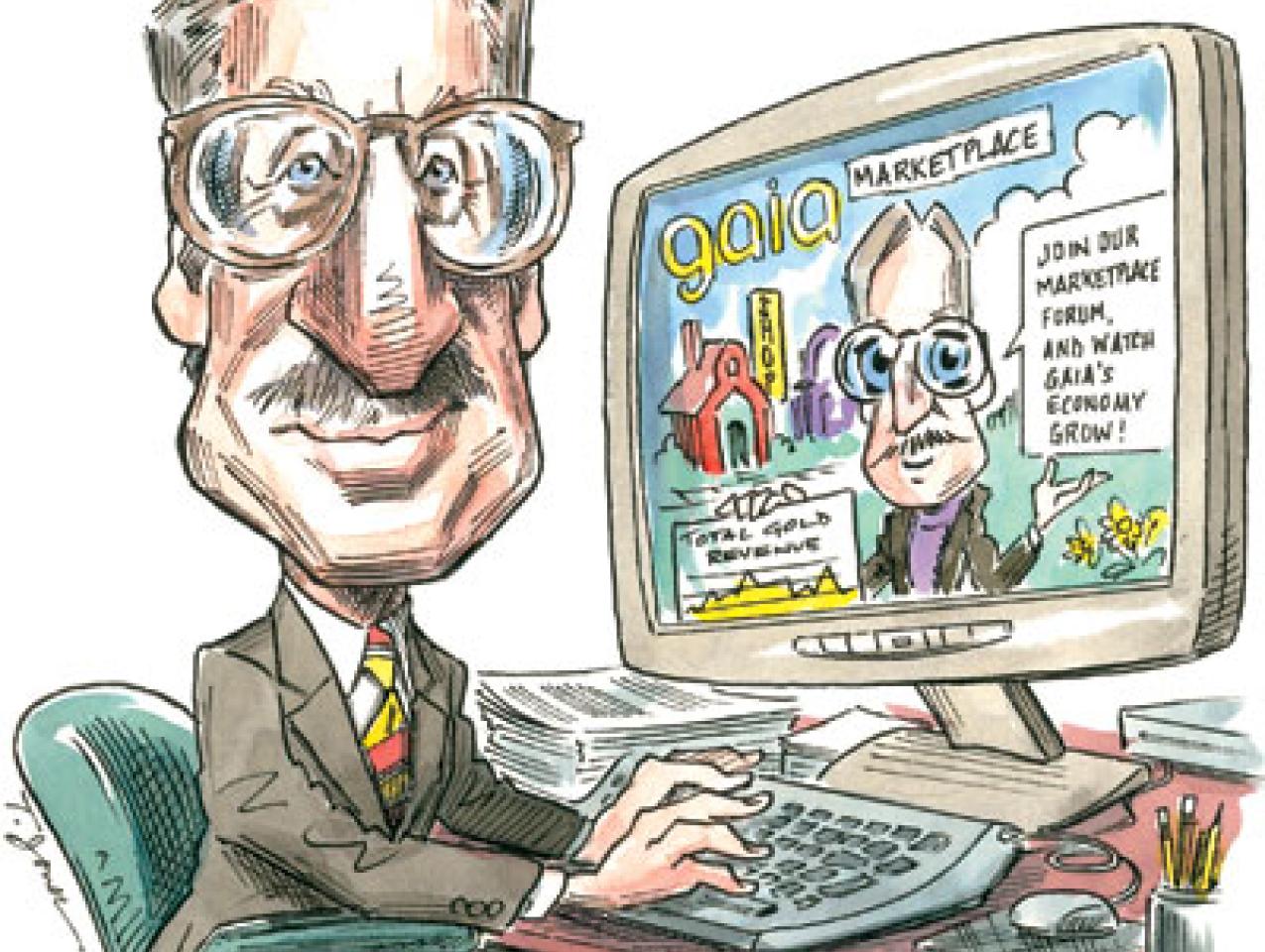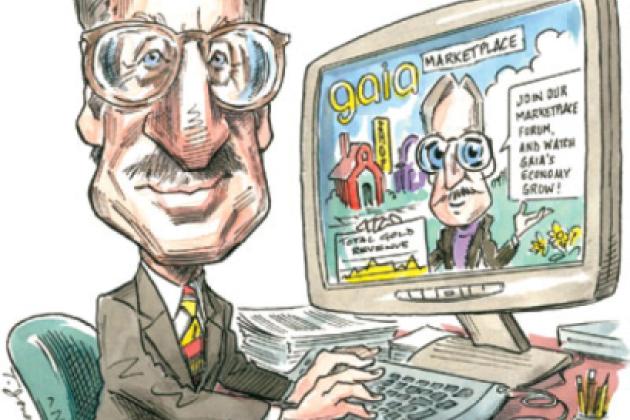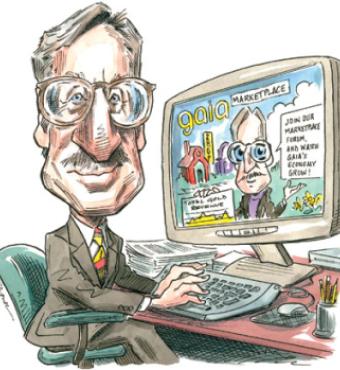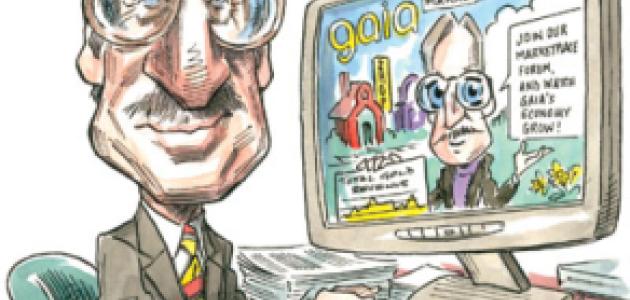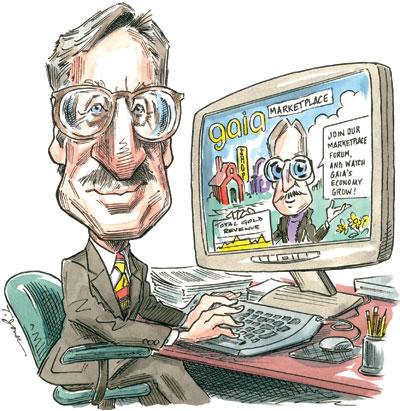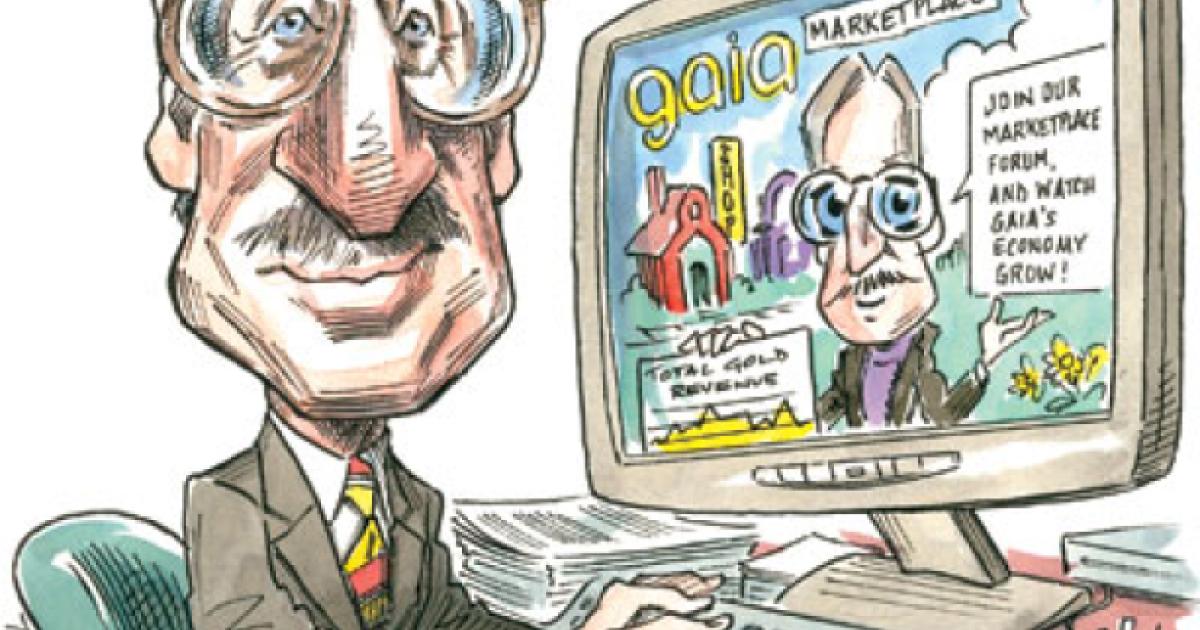- Budget & Spending
- Economics
- World
- Law & Policy
- Civil Rights & Race
- Energy & Environment
- History
Gaia Online, a teen-oriented virtual world with 2.5 million monthly participants, has invited celebrated economist Michael Boskin to lead its new Council of Economic Advisers. Boskin, a former chairman of the Council of Economic Advisers under President George H. W. Bush, is a senior fellow at the Hoover Institution and the T. M. Friedman Professor of Economics at Stanford University. He advises several sovereign governments and serves on the boards of companies such as Exxon Mobil and Oracle. So what does he see in Gaia Online?
Like other virtual worlds, such as Linden Lab’s Second Life, Sony Online Entertainment’s EverQuest II, and Blizzard Entertainment’s World of Warcraft, Gaia has an economy that’s more realistic than you might think. Players can’t directly convert their in-world “gold” to U.S. dollars, but they’re still making economic decisions when they carry out their 100,000 daily transactions.
Boskin spoke with me before the announcement of his new, part-time role with Gaia:
Daniel Terdiman: How did you get involved with Gaia Online?
Michael Boskin: I got involved with Gaia through Craig Sherman, the CEO, and one of the original investors. They described what they were doing at Gaia and their desire to make the site richer and more interesting as the site grew and the economy became more interesting.
Terdiman: How much background and understanding of these virtual economies did you already have?
Boskin: Some. I was aware of them, and I’ve visited them briefly to look at them; I also have friends who are involved with them or investors in them. I know something of their growth and of the people in and around these sites and these businesses, and what they’re trying to do with them. I find the general space quite interesting. As an economist, I find it very interesting how many people are willing to spend so much of their time at Gaia. People are spending on average more than two hours per day on the site, which is a real economic investment.
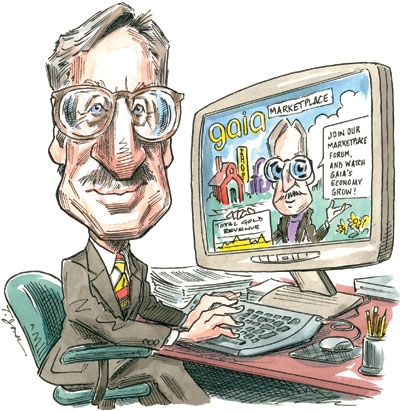
Terdiman: What attracted you to taking on this role?
Boskin: How the economy of these sites, and in particular that of Gaia, evolves. How people make decisions about how to spend their time on it, how much time to spend, and how to accumulate various things. Businesses are starting up, people have banks, people are lending virtual money, and so on.
How these decisions are made, what they mean, how sensible they are, and how this economy would grow over time . . . there’s real economics inside this—very similar to, or analogous to, a lot of what goes on in the real economy in the offline world. We have an opportunity to get real data on what they’re doing and understand it and an opportunity to suggest various mechanisms that will encourage growth and keep it fun and interesting for them.
“People create items and auction them. People are creating banks and lending from them. People are coming to borrow money from the banks to start a restaurant, things of that sort. . . . So there are a lot of analogues to what goes on in real-world economic activity.”
Terdiman: Can you talk about the similarities between the Gaia economy and that of the United States?
Boskin: The fundamental similarity is that you have people making decisions on how to allocate their time and use their skills. That is at the core what is similar about them, which has a lot of consequences for Gaia. But it is not designed to replicate a real economy.
Terdiman: Is there a way to estimate the size of the Gaia economy?
Boskin: We’re working on a variety of measures and indicators. Not being able to translate it into dollars or euros is an obstacle to giving us that simple metric, but we’ll come up with a variety of other metrics that will enable us to see how it grows and how things are valued internally. Then we’ll work on the more difficult task of getting some overall measure that relates to something outside the virtual world.
Terdiman: What kind of metrics do you think those would be?
Boskin: For example, what’s happening in the prices and auctions of similar items: Are they going up? Are they coming down? How much Gaia gold is being accumulated by people investing their time, energy, talent, and skills in gaming and sharing? And other things of that sort. There’s a kind of rate of accumulation, which would be similar to the capital formation rate and the rate of growth of the money supply. We’re also going to work on something like a consumer price index inside Gaia, as well as metrics to help us understand what’s actually going on and how to have the experience be seamless and frictionless as it grows, in addition to keeping it fun and not slowing it down with a lot of restrictions.
Terdiman: What changes to the Gaia economy do you anticipate?
Boskin: We have to analyze it first and take a look at what would make sense. But as for the supply and demand inside the economy, any highquality economist would analyze that quite similarly.
Terdiman: How hands-on are you going to be?
Boskin: A graduate student, who is now working on the detailed data, will be doing some of that. And I will be giving some overall advice and guidance and overseeing some analysis. It’s not meant to be a role that takes a large fraction of my time, but there will be times when I’m spending a fair amount of time on it.
“People are willing to spend so much of their time at Gaia. People are spending on average more than two hours per day on the site, which is a real economic investment.”
Terdiman: Can you talk a little bit about the kinds of activity that go on and some of the more popular things people do in Gaia?
Boskin: People create items and auction them. People are creating banks and lending from them. People are coming to borrow money from the banks to start a restaurant, things of that sort. People are playing a variety of games, buying and selling various things, including clothing and accessories for their avatars [players’ on-screen personas] and furnishings for their virtual homes. So there are a lot of analogues to what goes on in real-world economic activity.
Terdiman: Why is it important to have someone with your background come and take over this economy?
Boskin: I think “take over the economy” is not quite right. I’m going be providing analysis and guidance to the management team and some of the creative people at times; I think the idea is to anticipate things that may come up that could improve and enrich the site rather than to be running the economy.
Terdiman: Can you make the end users’ experience a better one?
Boskin: That’s the desire. This is, above all, supposed to be a fun, interesting, entertaining, valuable, virtual experience for people. The economy is part of that. It’s not the whole thing. People are on this site for lots of reasons, including social networking, and we want to make sure that the economy part is the best experience it can be, that it grows appropriately, and that we anticipate problems and head them off. And that we develop new things that people will find interesting and valuable.
Terdiman: What do you anticipate will be the biggest challenges?
Boskin: The Gaia economy is basically doing OK. The site is growing so rapidly, the number of transactions is growing so rapidly, the number of things people are doing is growing so rapidly, that we’ve got to take a look at this array and try to anticipate some of the issues that are emerging. For example, people have opened something like seven banks to lend people virtual money, and interest rates are not all the same. In the real world, interest rates across banks tend to be only slightly different, so do we develop some mechanism to provide greater transparency about prices? That will be valuable for our consumers and borrowers in this economy to know they can get something for less.
Terdiman: What do you say to people who don’t understand this whole idea of a virtual economy?
Boskin: This is a very real phenomenon going on here. It happens to be in the virtual world, but it’s a real phenomenon. Millions of people are spending their valuable time and using their skill to inhabit these places. That is economically fascinating on many dimensions.
This interview was posted by CNet News on September 19, 2007.








